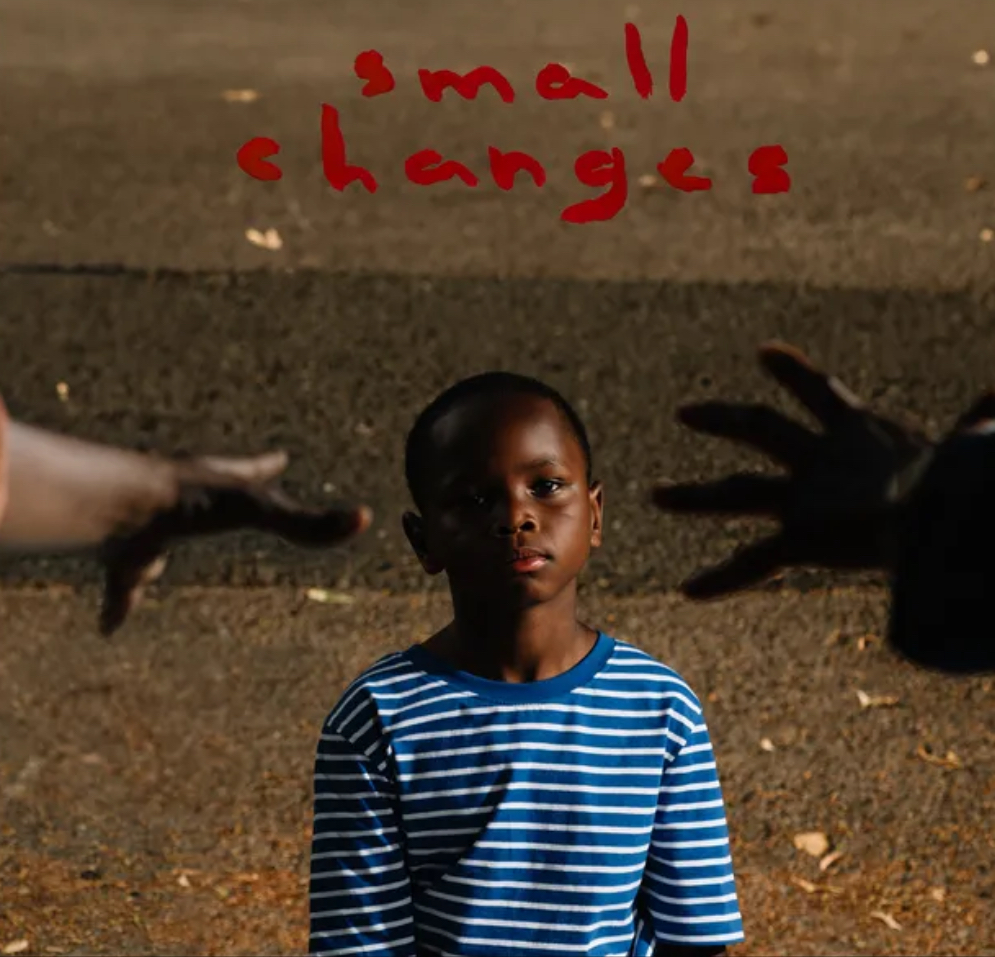British-Ugandan soul singer Michael Kiwanuka released his much anticipated fourth album, “Small Changes,” on Nov. 22. Keeping with the title, Kiwanuka’s newest record is more cut down and streamlined than his last album, but these small changes have a dramatic effect.
Combining his guitar expertise with soul vocals, Kiwanuka has been a force to be reckoned with ever since his debut album, “Home Again,” released in 2012. He stunned audiences with the power of his voice and his laid-back approach to songwriting. He found more attention after touring with Adele in 2011, introducing his transcendent style to audiences worldwide and earning him the BBC Sound of 2012 award.
“Small Changes” comes on the heels of Kiwanuka’s 2020 win of the Mercury Prize, an annual award given to the best artist from the British Isles. He earned the award from the success of his 2019 concept album, “KIWANUKA,” which focused on his struggles with self-worth and anxiety as an artist. Critics appraised his art as standing among the best of modern soul, evoking “the work of greats such as Bill Withers and Gil Scott-Heron.”
With renewed confidence, “Small Changes” distills Kiwanuka’s style into a smooth formula but doesn’t simplify any of the rich thematic elements that made his music great. Inspired by changes in his life, such as moving cities and becoming a father, “Small Changes” is radically nuanced, deceptively mellow and decidedly debonair.
The opener, “Floating Parade,” demonstrates this new approach perfectly, as Kiwanuka effortlessly skates over an ethereal instrumental, courtesy of producer extraordinaire Danger Mouse. The musical partnership between the two has lasted over a decade, and this album still sets a high-water mark for production quality. Each component of the song is carefully mixed to highlight the intricacies of Kiwanuka’s vocal performance, from deep lows to stirring crescendos.
“We can’t be stronger than life itself,” Kiwanuka sings in the chorus. “We can be solid but hardly make a dent.”
The next song, the titular “Small Changes,” expands on the previous song’s exploration of self-doubt by reaffirming his worth in a relationship. While not as lyrically dense or politically pertinent as his earlier work, this song excels at creating a wholesome, inviting atmosphere.
“One And Only” follows up that track by showcasing another one of Kiwanuka’s signature features: his guitar skills. Even if he doesn’t play complex licks, the minute-long solo that begins “One And Only” manages to be catchy without being harsh. It also highlights Kiwanuka’s ability to harmonize with himself through looping tracks, underscoring heartwarming lyrics about a relationship built to last.
Kiwanuka expounds upon his central theme of worth in the next song, “Rebel Soul,” by asking the audience members to cast off their devils and break the chains holding them back. Individualism, he assesses, is key to meaning, rather than merely “moving up” society’s pre-existing hierarchy.
“Too scared to show your rebel soul,” Kiwanuka sings. “But I don’t mind.”
The following two songs on the album are halves of the single “Lowdown” that Kiwanuka released in September. The first portion is a somber ballad about feeling out of place, likely inspired by Kiwanuka’s own move from his hometown of London. The second, however, is an entirely acoustic, voiceless piece, featuring an energetic guitar solo, building towards a melancholy finale accompanied by orchestral strings.
In sharp contrast to the instrumental, the next track on the album, “Follow Your Dreams,” sports a driving synth line and a distinctly spacey guitar tone. The lyrics are also far more complex than the title lets on, contending that hope is about finding power in community rather than self-reliance.
“All the time we bide / tryna feel complete,” Kiwanuka sings. “Take this feeling far away / throw your hand in mine.”
As with much of this album, “Follow Your Dreams” transitions seamlessly into “Live For Your Love,” a groovy song underscored by a booming bassline. While rather short, it serves as a great segue into “Stay By My Side,” an intimate track that soars to a brilliant climax. Both songs deeply address the concept of love as a necessary partnership full of sacrifice because “no heart’s designed / to be alone.”
Kiwanuka addresses love further in his next song, “The Rest Of Me,” but through the lens of religion and piety. His acoustic guitar licks give the song a personal touch, like looking in on a sincere prayer.
The album’s conclusion, “Four Long Years,” is a surprisingly solemn reflection on living in the past. Kiwanuka dredges up a love gone by and lingers on its effects in the present, ending the song with another tastefully restrained guitar solo.
In a culture chock-full of “lo-fi” music, Kiwanuka shows his mastery over tranquility in “Small Changes.” While gentle on the ears, his music shows that meaning can still be crafted without severity or dissonance.









